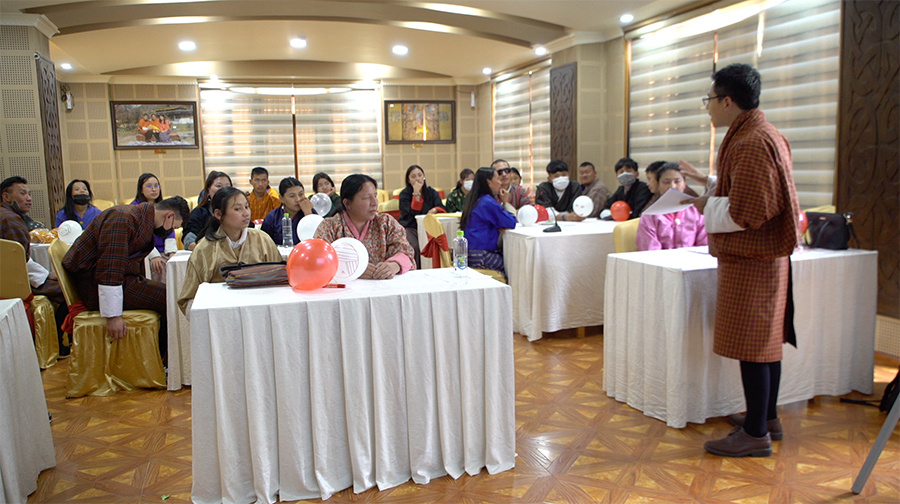
Overlooked by society, persons with disabilities are often brushed aside when it comes to receiving skills development programmes. Thus, they are left feeling the brunt of a lack of financial stability and independence later in life. Even with many policies in favour of Persons with disabilities, without firm implementation, they struggle to earn for themselves. To reverse this trend, Rural Education and Development Bhutan or READ Bhutan provided a three-day entrepreneurship programme in Thimphu for persons with disabilities. It intends to promote inclusive socio-economic development for socially vulnerable groups including people with disabilities.
23 Persons with Disabilities are taught how to come up with business ideas, marketing, and development of financial and business plans.
People with disabilities face several obstacles and barriers such as discrimination, lack of accessibility, and limited access to funding and resources. Despite these challenges, many successful entrepreneurs with disabilities have demonstrated that it is possible to overcome these obstacles.
One such individual is 23-year-old Leki, an entrepreneur from Gelephu, settled in Thimphu. She makes a living running a tailoring shop and earns extra income by marketing her products from door to door. She now plans to start a marketing platform to sell the products and services of Persons with Disabilities.
“It has been four months since I started my tailoring shop at Babesa. In the beginning, it was difficult to even pay the rent and people doubted our abilities since we are disabled. At the moment, I have four girls working under me and two of them are disabled. Regardless, we haven’t received any complaints as of now, even if they do, we would gladly rework it,” said Leki Lhaden.
22-year-old Dorji is a student at Draktsho and it has been two years since he started a home-based chips-making business. He said he was inspired to take up business as his parents are both entrepreneurs.
“I feel like entrepreneurs with disabilities are not given equal opportunities as even banks don’t provide us loans. People don’t take us seriously due to our disabilities. When we do marketing, people doubt the quality of our products which poses a lot of difficulties.”
The facilitators shared that even though the persons with disabilities were slow in learning, they were equally competent in delivering. The challenges, according to them, stem from a lack of proper access to education and adequate facilities in the country which has always been a concerning issue.
“The reason I am attending this programme is to gain basic entrepreneurship skills to do business in the future and also to teach my SEN kids back in school who will benefit from these skills. In the future, I plan to retire and set up my massage centre in Gelephu. My husband has the skills to be a masseuse and I plan to assist him in any way I can,” said Kezang Choden, SEN teacher of Changangkha MSS.
She said entrepreneurship can provide people with disabilities with a sense of purpose, independence, and financial stability, while also allowing them to create solutions and contribute to society in meaningful ways.
This is the first time persons with disabilities are participating in an entrepreneurship programme. READ Bhutan will identify potential entrepreneurs and provide additional support to help them realise their entrepreneurial dream at the end of the programme.
Starting a business can provide a source of income for people with disabilities, which can be particularly important if they have limited access to other forms of employment.
Tshering Deki
Edited by Phub Gyem








